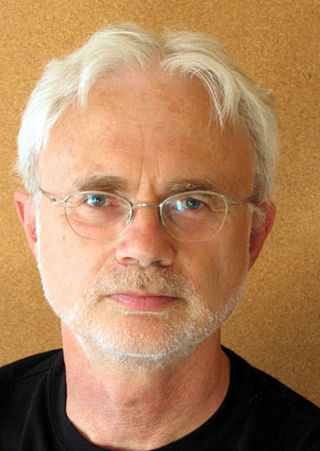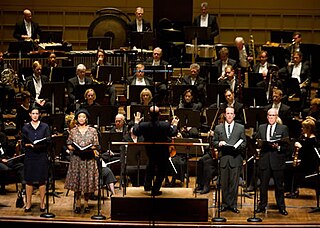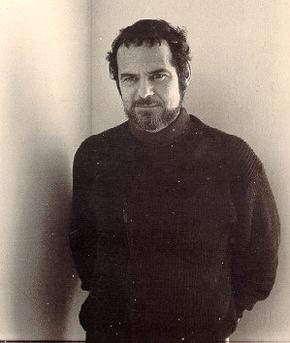Related Research Articles

John Coolidge Adams is an American composer and conductor. Among the most regularly performed composers of contemporary classical music, he is particularly noted for his operas, many of which center around historical events. Apart from opera, his oeuvre includes orchestral, concertante, vocal, choral, chamber, electroacoustic, and piano music.
Although a concerto is usually a piece of music for one or more solo instruments accompanied by a full orchestra, several composers have written works with the apparently contradictory title Concerto for Orchestra. This title is usually chosen to emphasise soloistic and virtuosic treatment of various individual instruments or sections in the orchestra, with emphasis on instruments changing during the piece. It differs from sinfonia concertante in that it has no soloist or group of soloists that remains the same throughout the composition.
Shulamit Ran is an Israeli-American composer. She moved from Israel to New York City at 14, as a scholarship student at the Mannes College of Music. Her Symphony (1990) won her the Pulitzer Prize for Music. She was the second woman to win the Pulitzer Prize for Music, the first being Ellen Taaffe Zwilich in 1983. Ran was a professor of music composition at the University of Chicago from 1973 to 2015. She has performed as a pianist in Israel, Europe and the U.S., and her compositional works have been performed worldwide by a wide array of orchestras and chamber groups.

Julia Wolfe is an American composer and professor of music at New York University. According to The Wall Street Journal, Wolfe's music has "long inhabited a terrain of its own, a place where classical forms are recharged by the repetitive patterns of minimalism and the driving energy of rock". Her work Anthracite Fields, an oratorio for chorus and instruments, was awarded the 2015 Pulitzer Prize for Music. She has also received the Herb Alpert Award (2015) and was named a MacArthur Fellow (2016).

Harold Charles Schonberg was an American music critic and author. He is best known for his contributions in The New York Times, where he was chief music critic from 1960 to 1980. In 1971, he became the first music critic to win the Pulitzer Prize for Criticism. An influential critic, he is particularly well known for his encouragement of Romantic piano music and criticism of conductor Leonard Bernstein. He also wrote a number of books on music, and one on chess.

Steven Edward Stucky was a Pulitzer Prize-winning American composer.

Ralph Shapey was an American composer and conductor.
Christopher Chapman Rouse III was an American composer. Though he wrote for various ensembles, Rouse is primarily known for his orchestral compositions, including a Requiem, a dozen concertos, and six symphonies. His work received numerous accolades, including the Kennedy Center Friedheim Award, the Grammy Award for Best Classical Contemporary Composition, and the Pulitzer Prize for Music. He also served as the composer-in-residence for the New York Philharmonic from 2012 to 2015.

Stephen Joel Albert was an American composer. He is best known for his Pulitzer Prize winning Symphony No. 1 RiverRun (1983) and his Cello Concerto (1990), written for Yo-Yo Ma. He died suddenly in a 1992 automobile accident, having just sketched out his Second Symphony. The work was subsequently completed by Sebastian Currier, and his death sparked musical tributes from composer colleagues such as Aaron Jay Kernis and Christopher Rouse.
Jennifer Higdon's Concerto for Violin and Orchestra was written in 2008. The work was jointly commissioned by the Indianapolis Symphony Orchestra, the Toronto Symphony Orchestra, the Baltimore Symphony Orchestra, and the Curtis Institute of Music. It was composed for the violinist Hilary Hahn and was given its world premiere by Hahn and the Indianapolis Symphony Orchestra under the conductor Mario Venzago on February 6, 2009. The piece was later awarded the 2010 Pulitzer Prize for Music.
Symphony No. 1 RiverRun is an orchestral symphony in four movements by the American composer Stephen Albert. The piece was completed in 1983 and won the Pulitzer Prize for Music in 1985. The title comes from the novel Finnegans Wake by James Joyce, whose literature served as inspiration for the work.
The Symphony No. 2 is a three-movement symphony for orchestra by the American composer Stephen Albert. The work was commissioned by the New York Philharmonic for their sesquicentennial anniversary. However, the piece had to be completed posthumously by the composer Sebastian Currier after Albert died suddenly in a car crash on December 27, 1992. The first performance took place November 10, 1994 with the New York Philharmonic conducted by Hugh Wolff. Albert's previous Symphony No. 1 RiverRun had won the Pulitzer Prize for Music in 1985.
The Symphony is a symphony for orchestra by the Israeli-American composer Shulamit Ran. The work was commissioned by the Philadelphia Orchestra under the direction of Riccardo Muti in 1987 and was given its world premiere on October 19, 1990. The piece was awarded the 1991 Pulitzer Prize for Music and took the first place Kennedy Center Friedheim Award that same year. It was composed in a primarily atonal style.
Of Reminiscences and Reflections is an orchestral composition by the American composer Gunther Schuller. It was composed on a commission from the Louisville Orchestra as an elegy to Schuller's wife Marjorie, who died in November 1992. The composition was written over a 17-day period in September 1993 and has a duration of roughly 20 minutes. The piece was awarded the 1994 Pulitzer Prize for Music.
Steel Hammer is a 2009 composition for three sopranos and chamber ensemble by the American composer Julia Wolfe. It was first performed on November 21, 2009, at Zankel Hall by the contemporary classical music groups Bang on a Can and Trio Mediæval. The piece is based on the ballad of the African-American tall tale John Henry. The composition was a finalist for the 2010 Pulitzer Prize for Music.
Duplicates: A Concerto for Two Pianos and Orchestra is a concerto for two pianos and orchestra by the American composer Mel Powell. The work was commissioned in 1987 by the philanthropist Betty Freeman for the Los Angeles Philharmonic. It was first performed at the Dorothy Chandler Pavilion on January 26, 1990, by the pianists Alan Feinberg and Robert Taub and the Los Angeles Philharmonic under the conductor David Alan Miller. The composition was awarded the 1990 Pulitzer Prize for Music.
The Face of the Night, the Heart of the Dark is an orchestral composition in one movement by the American composer Wayne Peterson. The piece was first performed by the San Francisco Symphony under the conductor David Zinman in October 1991. It won the 1992 Pulitzer Prize for Music. The title is a quote from the works of Thomas Wolfe.
Concerto Fantastique is an orchestral composition in four movements by the American composer Ralph Shapey. The work was commissioned by the Chicago Symphony Orchestra, who first performed the work under the composer on November 21, 1991. It was a finalist for the 1992 Pulitzer Prize for Music.
Cello Counterpoint is a composition for cello and pre-recorded tape by the American composer Steve Reich. The work was jointly commissioned by the Koussevitzky Foundation in the Library of Congress, the Royal Conservatory of The Hague, and Leiden University for the cellist Maya Beiser. It was given its world premiere by Beiser on October 18, 2003 at the Krannert Center for the Performing Arts. The piece was a finalist for the 2004 Pulitzer Prize for Music.
Eros Piano is a piano concerto written by the American minimalist composer John Adams. The work was commissioned by the Koussevitzky Music Foundation in 1984 and was completed in 1989. Its world premiere was performed by the pianist Paul Crossley and the London Sinfonietta conducted by Adams on November 24, 1989, in Queen Elizabeth Hall, London. The piece is dedicated to Paul Crossley. It is the first of three piano concertos by Adams, followed by Century Rolls in 1996 and Must the Devil Have All the Good Tunes? in 2019.
References
- ↑ Fischer, Heinz Dietrich, ed. (2010). The Pulitzer Prize Winners for Music. Peter Lang. pp. 160–161. ISBN 978-3-631-59608-1.
- ↑ Kozinn, Allan (February 6, 1991). "Review/Music; Riley, Minimal No Longer, Turns to a Polyglot Swirl". The New York Times . Retrieved October 15, 2017.